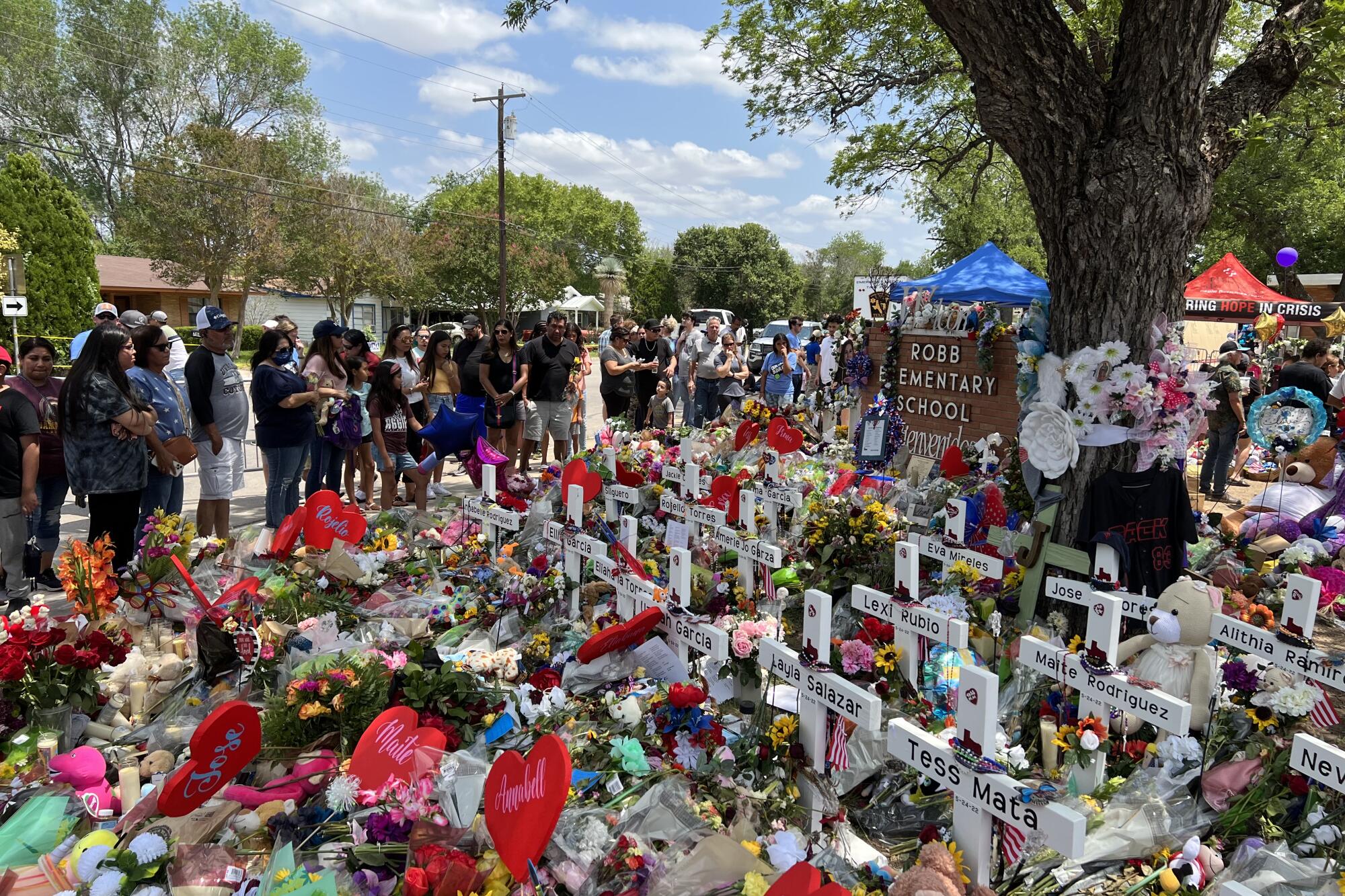
- Share via
I am mourning nineteen children I never knew.
I am mourning untied shoelaces and velcro straps,
unzipped backpacks and incomplete homework.
Their good grades in school
and the poor ones too.
Their gold stars and the bad marks,
their hair braided so tight with bolitas
before breakfast their head ached until dinner.
How they scrunched up their faces at
their baby studs and communion shoes,
straps marking their ankles skin-red.
How when crossing a street,
seeking solace from their fear
their fingers already knew
to clutch tight to another’s.
I am mourning their two teachers
who looked like my mother
my tías
my abuelas
in an earlier life,
younger faces of the people I love.
I am mourning the lost lunches
and the lesson plans
left, laid out on their desks.
The notes and suggestions to their students,
spare thoughts they scribbled to themselves.
Every day’s outfit planned before the week began
ironed by hand and hung there in the closet,
the clothes they will never wear again.
In passing,
my father berates the Texas police
their lack of urgency
their defense of handcuffing
parents
families
tasing their bodies
to stop them from begging, ripping free
or breaking down the school doors in their fury.
I want to ask him,
If everyone had been white inside that school,
all blonde locks and fair faces,
the kind easily found and easily missed,
would the police have intervened?
Would they have risked their lives
to save a child they didn’t claim?
Or would they still have left nineteen children
and their two teachers for dead?
But already I know these are not the right questions.
Instead,
What do we do
when we’re dying at the hands
of a shooter who was one of our own?
A boy who shared the rhythm of our name
and spoke the same language with
the same tongue in his mouth,
rather than a white man
with a colonized mind
and a gun in his hands
this country deems his right to wield?
I do not mourn him.
I don’t know how.
I mourn a community breaking
from bullets
death
decay
deportation
assimilation
alienation
segregation
punishment
for seeking a better life
only to have it taken away instead.
I mourn the children who lived.
Who remember those who didn’t.
Who now carry the burdens alone.
Sofía Aguilar is a Chicana poet based in Los Angeles and author of the forthcoming collection, “STREAMING SERVICE: season two.” @sofiaxaguilar
More to Read
A cure for the common opinion
Get thought-provoking perspectives with our weekly newsletter.
You may occasionally receive promotional content from the Los Angeles Times.









